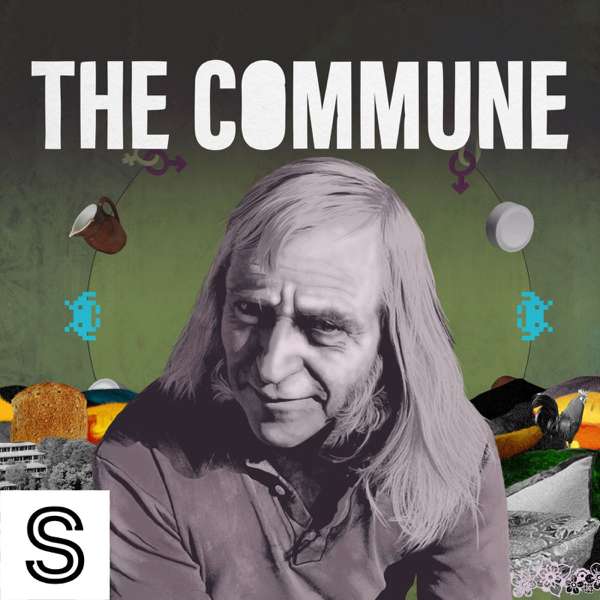EPISODE: LOVE, DOREEN
Doreen Jane Vincent was twelve years old when she vanished from her father’s rented farmhouse in Wallingford, Connecticut in June of 1988. At almost that exact moment, in Wallingford’s neighboring town of Meriden, I was turning ten. I first heard Doreen’s name in December 2018, more than thirty years later, when Sarah Dimeo and Joe Aguiar, host and producer of the podcast Faded Out, asked me to be the lead investigator on her case. I thought it would be a simple story; a mystery we could report on, maybe crack, and move on from. I was wrong.
People ask me why Doreen has gotten under my skin. That’s a complicated question, but I can tell you 1988 was the year I learned the word bogeyman. That April, a classmate of mine was stabbed to death by her father, in her kitchen, after asking him to cut a chocolate Easter bunny. He’d had a psychotic break and he remains institutionalized in Whiting Forensic Hospital to this day. Later that spring, a little girl about my age, on her way home from school, was pulled into the bushes and raped at a park less than a mile from my house. Known to me only by his first name, Clarence, that man was allowed to slip through the system and get right back on the street to stalk and victimize children. And that fall, a cousin of mine revealed her stepfather had been beating and raping her. That man was prosecuted for his crimes and ended up drinking himself to death in a worn-out chair in his shitty house. Those stories haunted me – not only as a child, but to this day. What happened to those girls – girls whose air I breathed – was awful, but their stories had answers; some type of resolution, no matter how tragic.
This tale is different. As I turned ten, I was ten miles away from Doreen, but it might as well have been a million. Her father and stepmother failed to report her missing for three days. For almost a year, she was reduced to a runaway and an afterthought, despite pleas from her mother and her aunts that something was very wrong. And in the almost thirty-two years since, Doreen’s never been found and no one has been held accountable, no matter the countless red flags that would scream out for attention. When I started looking into Doreen, I was sure pieces of her story would be everywhere, passed down through word of mouth, and urban legend. That everyone would know her name. What I have found, in the last year, is that that just wasn’t true. For everyone but her family, Doreen’s been whitewashed from existence, faded into a dirty little secret. And the more I dug, the more obstacles were thrown up around me at every turn – by people with something to hide, by the local media, by religious groups, and by the Wallingford Police Department itself. As I record this, the case I’ve brought against the Police with Connecticut’s Freedom of Information Commission to obtain the full file remains unresolved, with our second hearing just having taken place on February 3. There, to my shock, something really bittersweet took place – something that just feeds my drive to solve this case. There, finally, after almost thirty two years of waiting, the police finally admitted something a lot of us have always known to be true – that Doreen’s case wasn’t just that of a missing child. An endangered runaway. Finally, finally, Doreen’s case has been classified a homicide. And, despite all my frustrations with the Wallingford PD, I want to say I’m happy steps are being made. And I continue to extend the olive branch. Because at the end of the day, even if we all put our heads together and crack this case, only the police have the power to hold the right person – or persons – responsible.
But when people ask what obsesses me about Doreen, I tell them: it’s not just my need to figure out what happened to a little girl. It’s also to give that little girl an opportunity to tell her story, to give her the voice she deserves. To give her answers. In “Savage Appetites: Four True Stories of Women, Crime, and Obsession,” Rachel Moore writes, “The word victim is rooted in the Latin victima, which means sacrificial animal. This feels apt, but in an awful way. Because she’s dead, the victim can become whatever we want her to be. Because she’s dead, we can say whatever we want about her, and she can’t talk back. For some people, she is more valuable this way: holy, symbolic, silent.” These days, more of you know about Doreen. I’m glad. I don’t want her to be holy, symbolic, or silent anymore. When Sarah Dimeo launched Faded Out just one year ago, in January 2019, she faced the unenviable task of breathing life into an ice cold case. When Sarah first came upon Doreen’s name on the Charley Project website, the case was already over three decades old and long dormant. In preparation for my first call with him in January 2019, Lt. Anthony DeMaio, tasked with handling our inquiries, told me he’d reviewed the internet and found nothing new. In a January 23, 2019 press release entitled “Doreen Vincent – Missing Since 1988” – which was sent to us, and only us, Lt. DeMaio calls her case “mysterious” and suspicious” and notes that Doreen is often on the mind of the department. He writes, “The dogged investigation has led investigators to many cities and towns throughout Connecticut, as well as other states. Doreen’s maternal grandparents even hired a private investigator to look into their granddaughter’s disappearance, to no avail.” The second to last paragraph of the release discusses what would appear to be the last substantial police work done on the case – a 2011 revisitation of the file to ensure that no new information had been overlooked. As a result of that fresh look, the police sent Doreen’s dental records to a forensic odontologist in the hope advances in technology could reveal something new and checked to ensure Doreen was properly entered in the national missing person websites. The release says “We would be remiss to relate specific and closely held information to the public. What we can say is that we are always accepting information concerning the investigation, and upon receipt will scrutinize, examine, and follow all leads until exhausted.” The release concludes, “The Wallingford Police Department will not close this case until it is solved, and either Doreen herself, or her remains, are reunited with her family.”
So when we started digging, confident in our knowledge that we could unearth something valuable that we could share with the police. Those of you who listened to Faded Out how hard we dug, and how much we learned. And in the almost six months since Faded Out wrapped last summer, I haven’t stopped working. The Followers of Faded Out and Sticky Beak Facebook groups have been a blessing, giving me access to passionate, intelligent people with great ideas. I’ve unearthed explosive information and have made contact with a host of new characters. Some of them have raised more questions for me than they have offered answers, and they have some explaining to do. This podcast will give them that opportunity. But so many others have reaffirmed my faith in how strongly Doreen and the people that knew her need answers. I’ve learned to stop being surprised when they all inevitably tell me that my call was such a coincidence; that they were just thinking of Doreen yesterday, or at breakfast, or at church, or when they heard a song play. I’m here to tell you: It’s not a coincidence. Many of them have their own stories to tell...

 Our TOPPODCAST Picks
Our TOPPODCAST Picks  Stay Connected
Stay Connected







